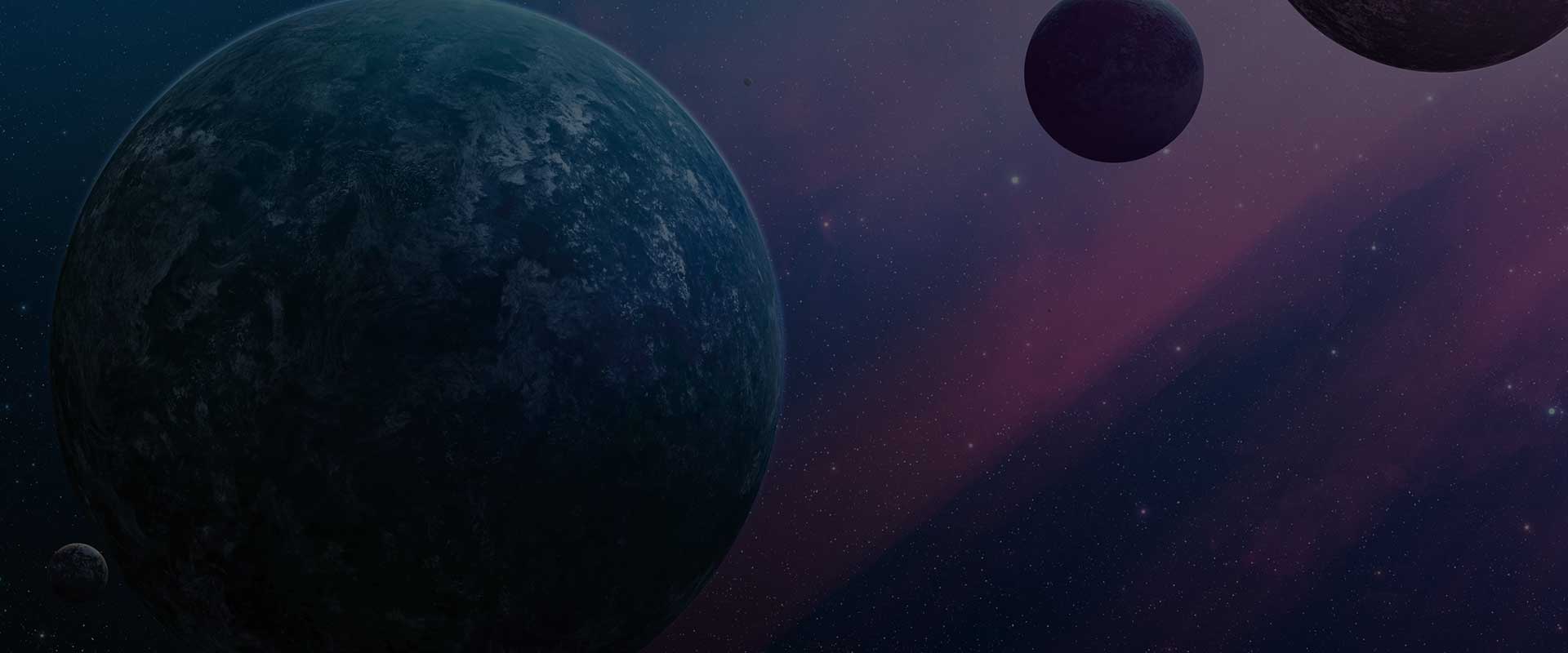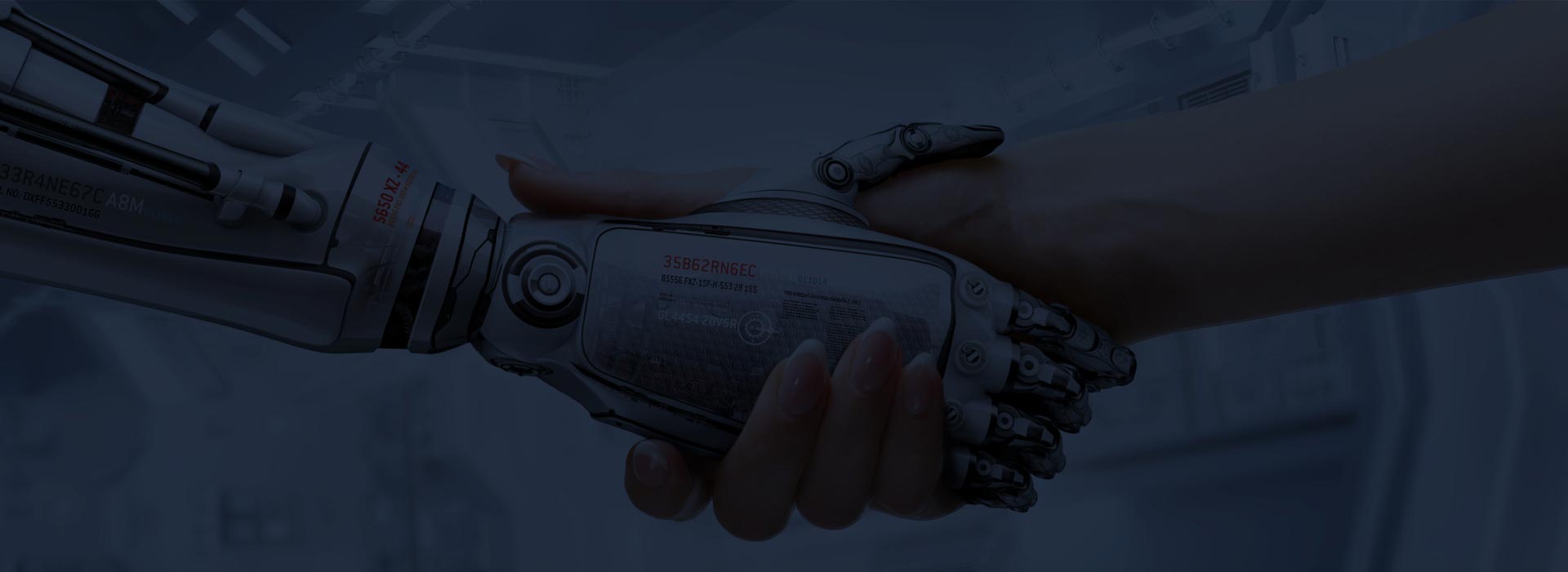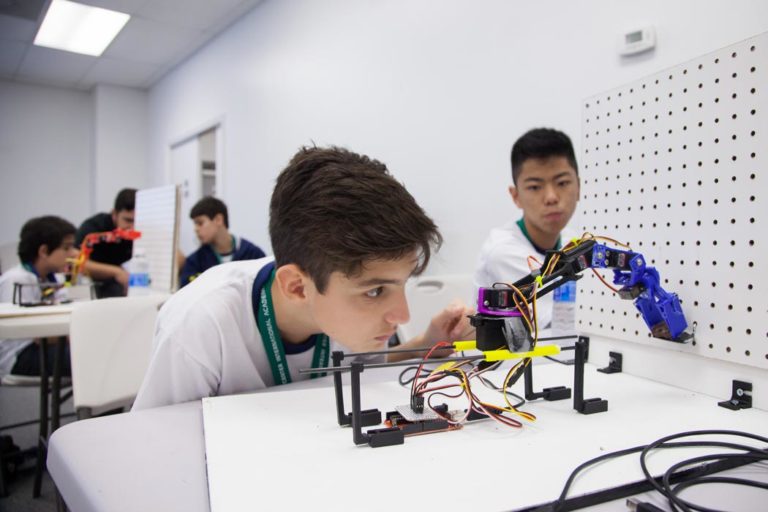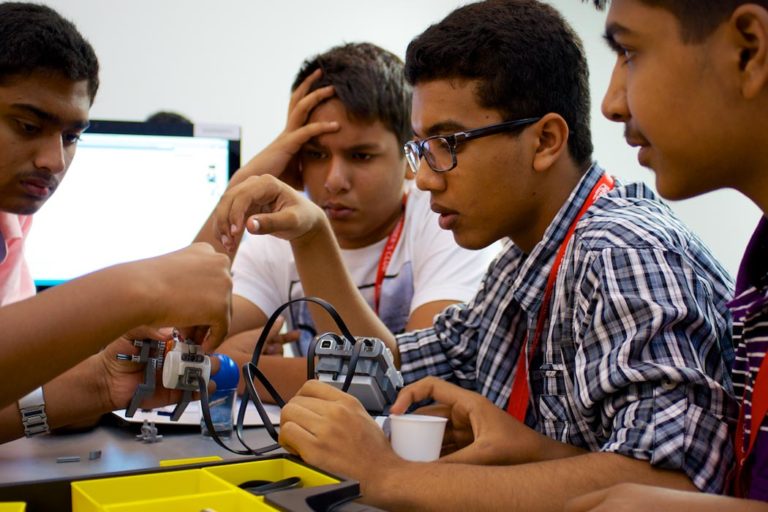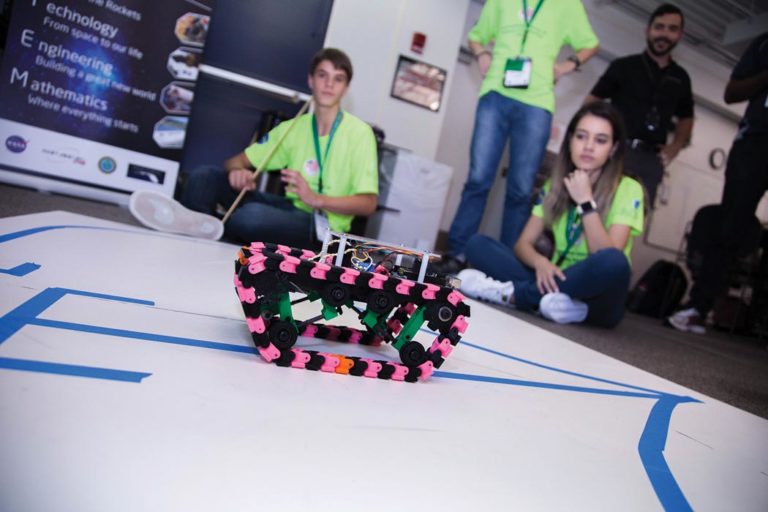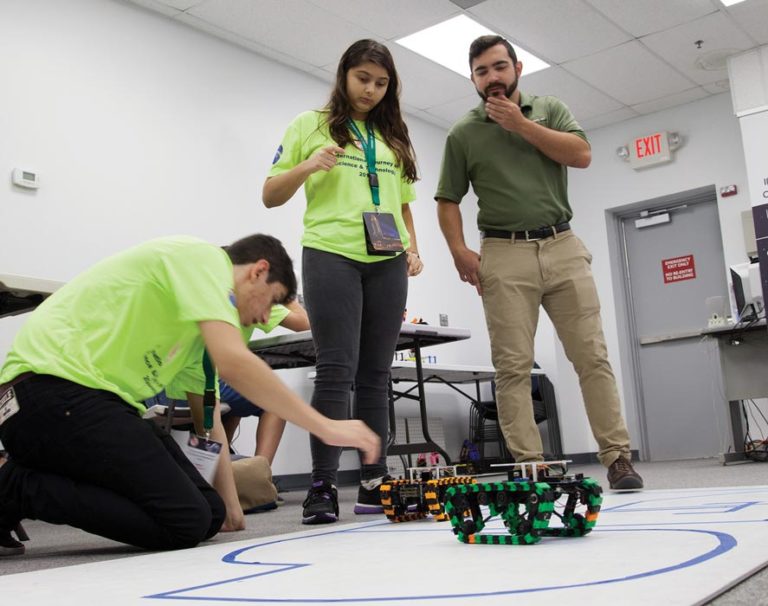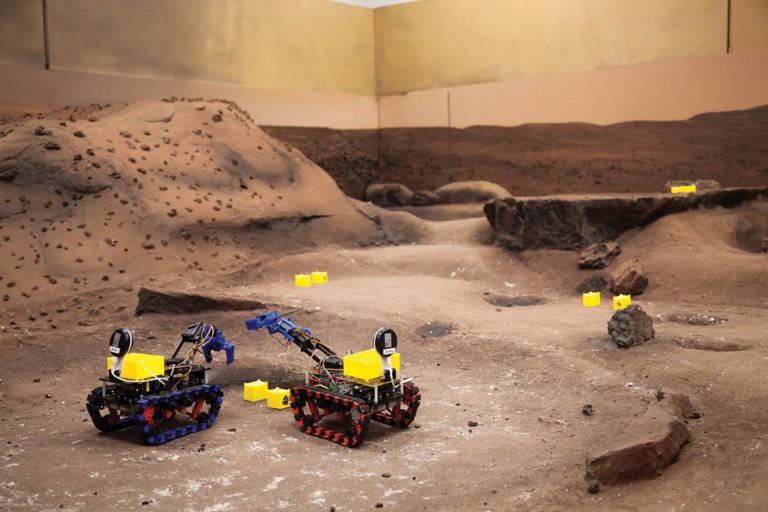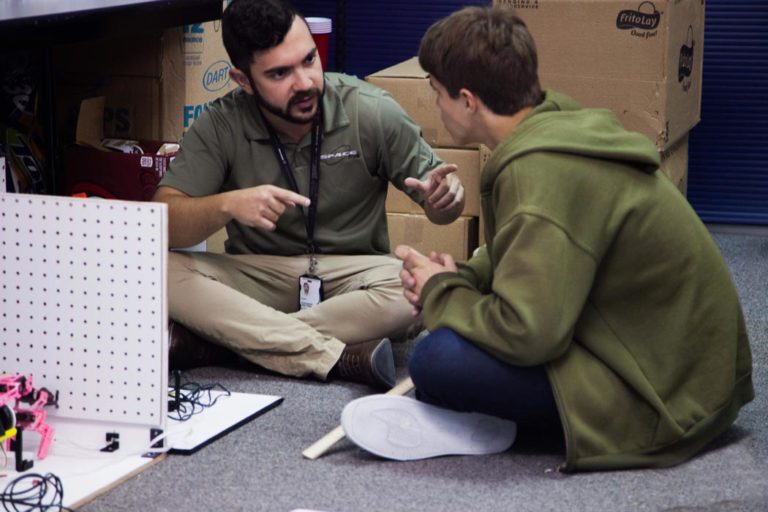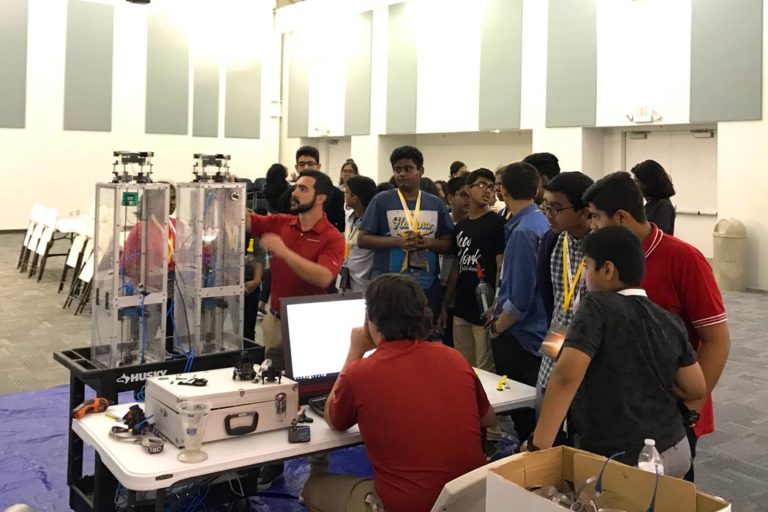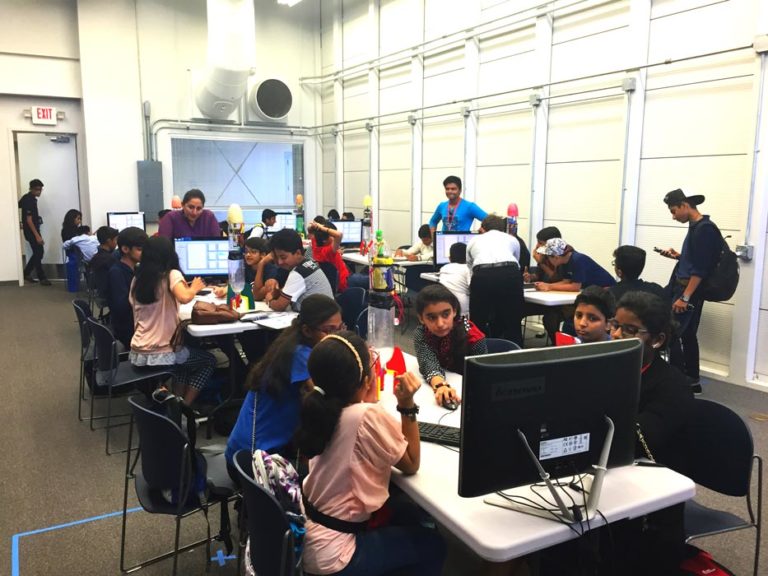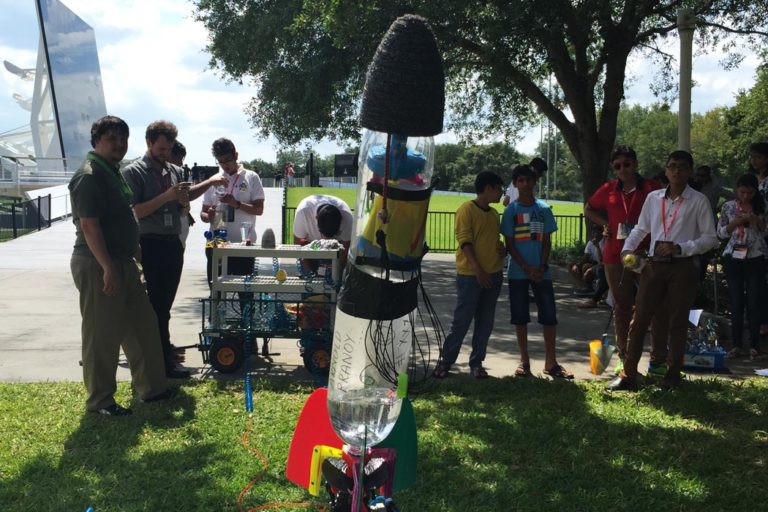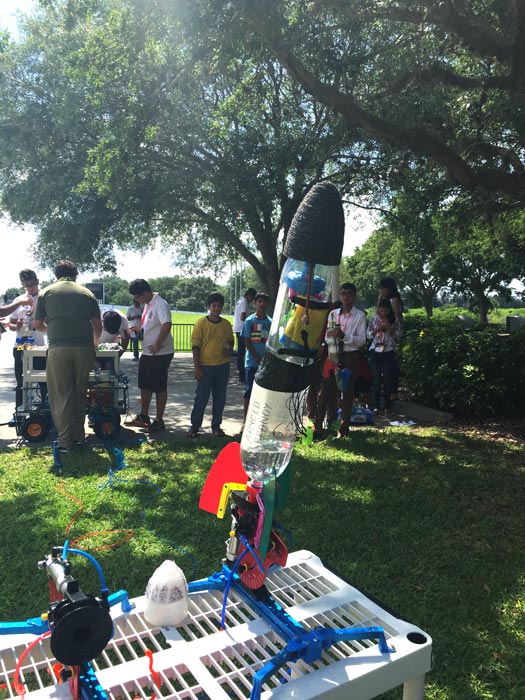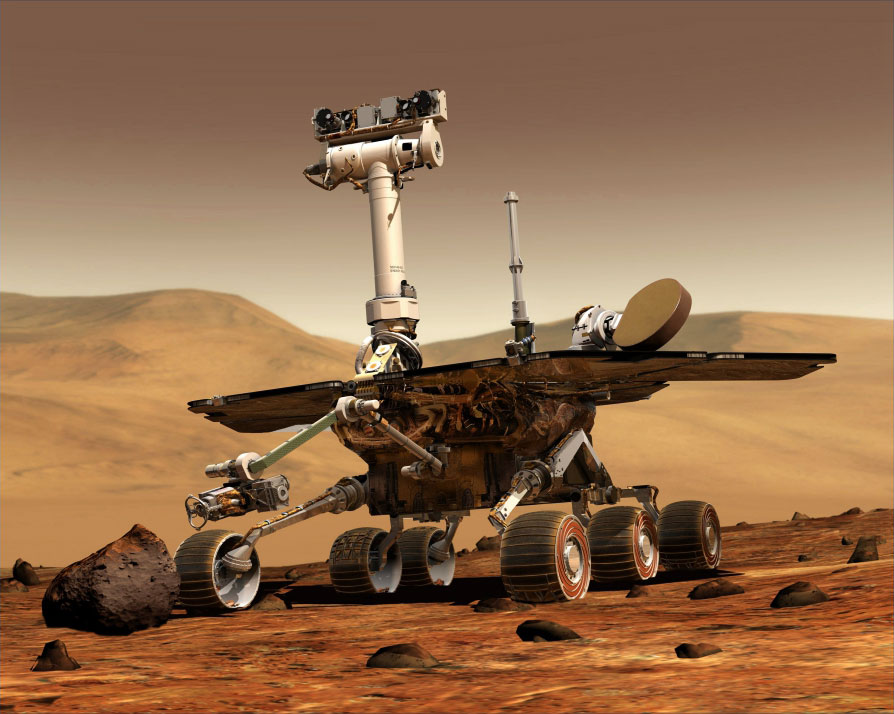
Will unmanned robotic missions be able to detect microscopic life-forms that might be lurking below the surface of Mars, or beneath the murky seas of Jupiter’s jumbo moon, Europa? With over 50 robotic missions throughout the solar system and beyond, and the famous Rovers on the surface of Mars, Robotic Exploration has come a long way
Embark on a journey filled with learning and adventure. In this program students will be introduced to robotics and learn the basics behind programming with an easy to use and globally familiar electronic platform – Arduino. With custom designed 3D printed robots and indigenous software, students will collaborate in teams to program a robotic rover and accomplish missions on Mars.
The Robot – A rover capable of traversing rocky mountainous surface, Robotic Arm with 9 DOF (9 degrees of freedom) and an array of sensors
While closely following instruction, teams must work to master various programming concepts for their robots to complete challenges. Experiences gained from each challenge, will prepare you for the final mission on our mock surface of Mars. Members of each team will prepare themselves to specialize in operating the robotic arm or programming the robot’s movements. Specialization will be an essential component of collaboration when the teams compete against each other during the final Mars surface mission.
Will unmanned robotic missions be able to detect microscopic life-forms that might be lurking below the surface of Mars, or beneath the murky seas of Jupiter’s jumbo moon, Europa? With over 50 robotic missions throughout the solar system and beyond, and the famous Rovers on the surface of Mars, Robotic Exploration has come a long way The Mars surface mission is the ultimate challenge students will be preparing and practicing for on the final day. This challenge takes place on our 16ft x 16ft (4.9m x 4.9m) Martian surface mockup where the terrain is much like that of actual Mars with some of the iconic features such as Olympus Mons and Schiaparelli Crater. Teams will have to use all of the programming concepts, mechanical knowledge, and any other functions and skills they will have learned in the days with us alongside their specializations to complete the Mars surface mission successfully. With nothing more than a large map, a computer to program, and a wireless camera attached to their robot as their only source of vision students are isolated from the Martian surface as they try to remotely maneuver their robot to designated target areas for sample collection. Using a significant amount of teamwork to traverse Mars the teams must use their robotic arm to precisely collect certain rock samples scattered across the surface for study. Geological information will signal to students of possible nearby scientifically valuable samples through the use of radio frequency identifiers (RFIDs) embedded into the Martian surface that the robot can detect. Approaching these areas for collection can prove to be difficult as the robot must be commanded to navigate around tough obstacles such as large craters, valleys, descents, and ascents. The team that acquires the most points from all of the challenges throughout the 3 days will be victorious.
Curriculum Components:
- Introduction to Programming Logic
- Basic and Advanced Programming Concepts, C++
- Knowledge Reinforcement Through Challenges
- Significant Teamwork
- Innovative and Critical Thinking
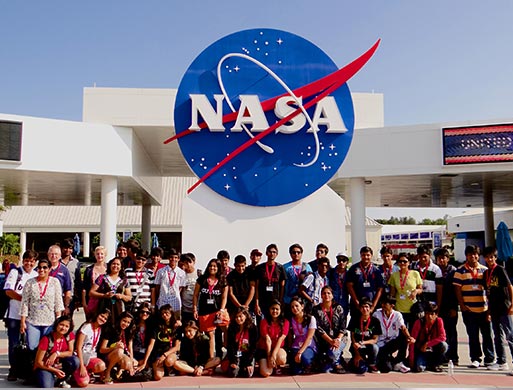
Generic Schedule
- 09:00
- Meet at Front Gate
- 09:15
- Space Trek Introduction
- 10:00
- Introduction to Programming
- 11:00
- IMAX
- 12:00
- Lunch
- 12:30
- Competition #1
- 01:00
- Programming Linear & Curvilinear Motion
- 01:15
- Practice Competition #2
- 02:30
- Competition #2
- 03:00
- KSCVC Exhibit
- 03:30
- Mission Status Briefing
- 04:00
- Day Adjourned
- 09:00
- Meet at Front Gate
- 09:15
- Introduction to Robotic Arm & Degrees of Freedom
- 10:00
- Advanced Programming
- 11:00
- Teams Split into Arm and Robot Specialists
- 12:00
- Lunch
- 12:45
- KSC Tour Discussion
- 01:00
- Kennedy Space Center Tour
- 03:30
- Introduce Final Competition
- 04:00
- Day Adjourned
- 09:00
- Meet at Front Gate
- 09:15
- Prepare Teams for the Mars Competition
- 09:30
- Teams Begin Martian Competition
- 11:40
- Rocket Garden Tour
- 12:00
- Lunch With an Astronaut
- 01:15
- Space Shuttle Atlantis Museum Shuttle Launch Experience
- 03:00
- Graduation
- 03:30
- Gift Shop
- 04:00
- Program Adjourned
UPCOMING CAMPS
DISCLAIMERS
- The placement of KSCVC activities depends on group size. Regardless, all students will see and do all of the events but the timings might change. This schedule only works if groups show up on time every day. Although we do not want to, we may have to remove activities from the schedule to keep the program on track if the group is late. Times of events and availability are always subject to change without notice.
- Shuttle Launch Experience, IMAX Movie Shows and other KSCVC exhibits will be spread around Martian Surface competition schedule.
